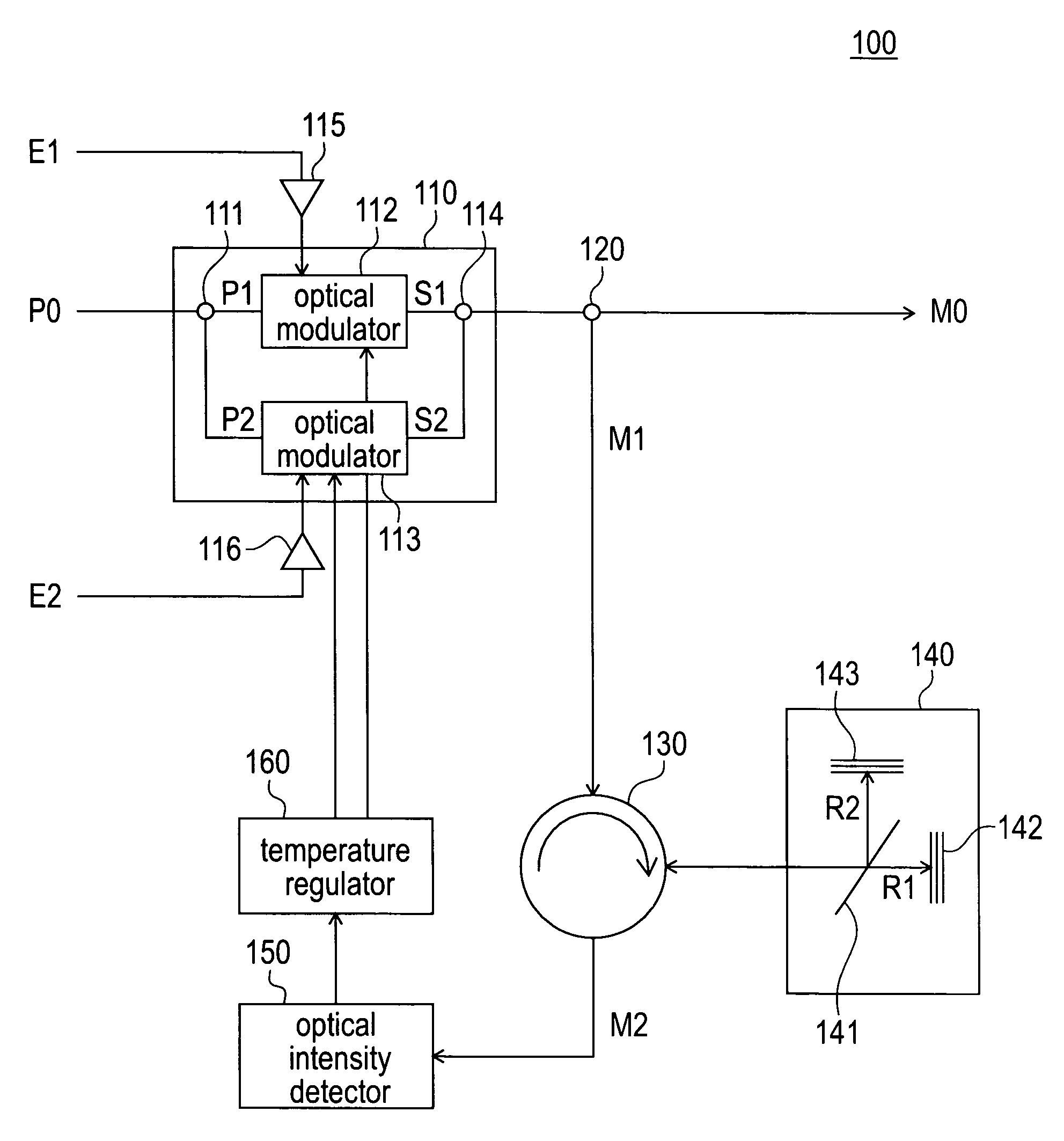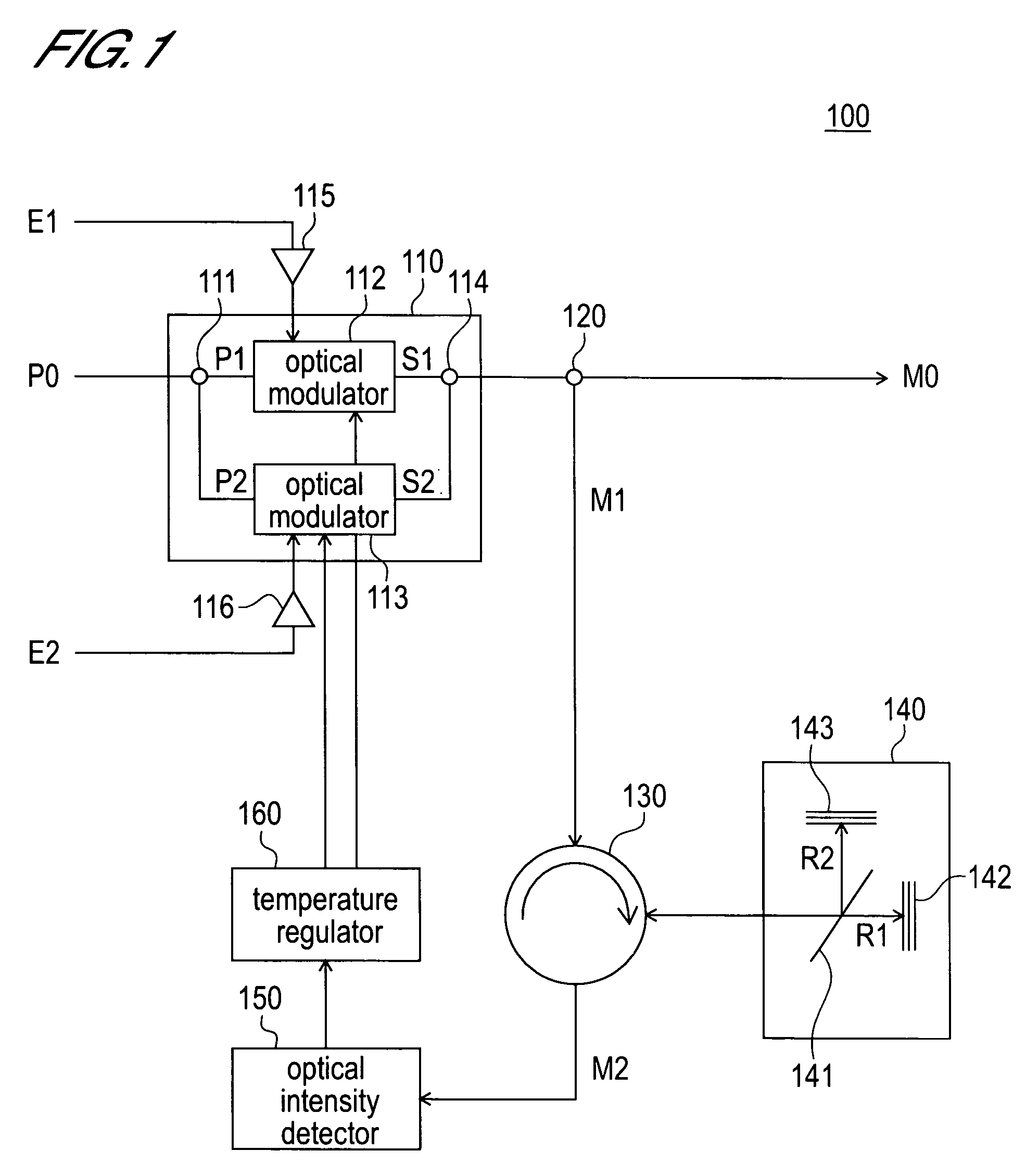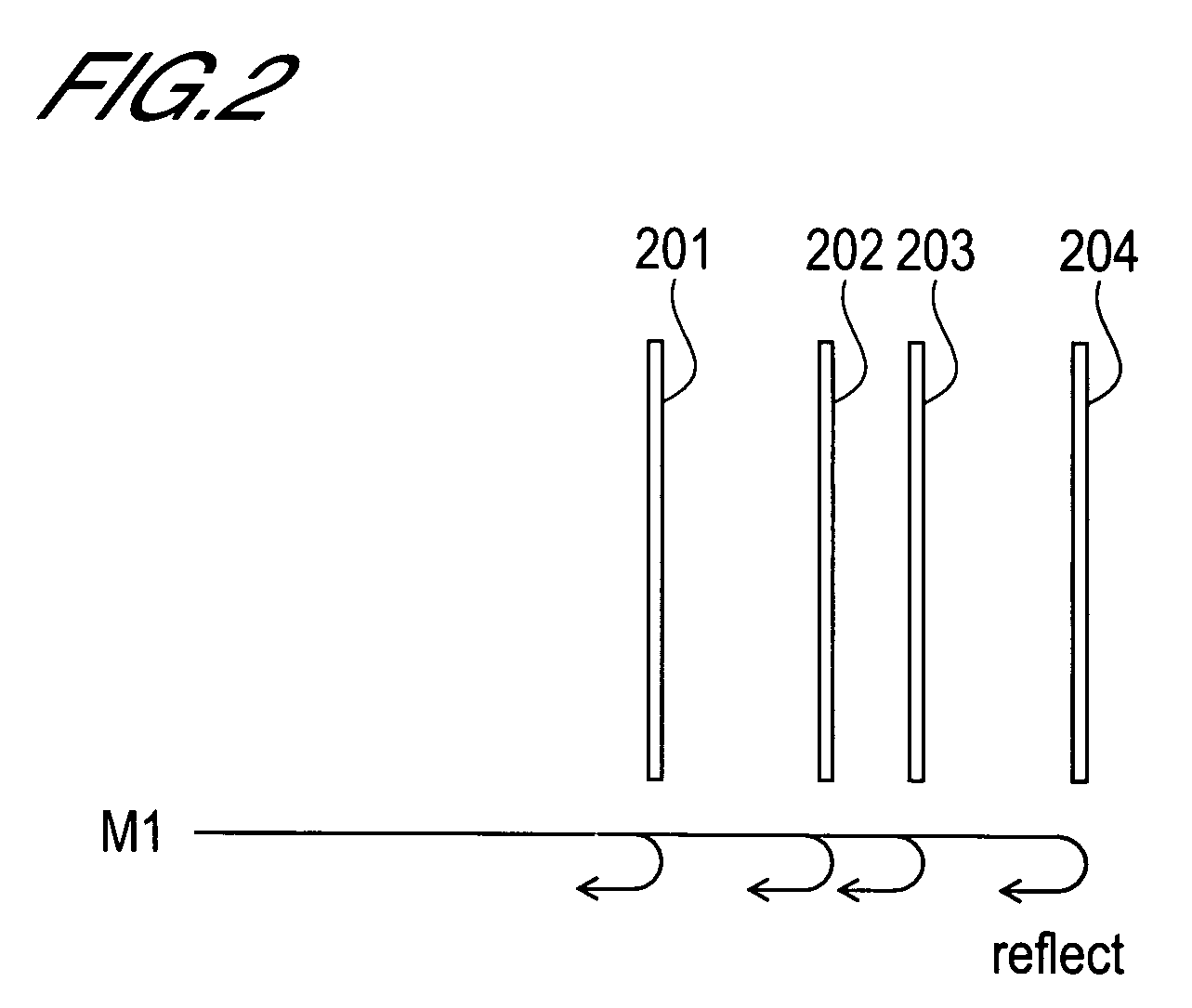Optical time division multiplexing transmitter
a transmitter and optical time division technology, applied in the field of transmitters, can solve the problems of difficult to accurately detect and difficult to control the phase of the carrier wave very accurately, and achieve the effect of accurately detecting the phase difference of the carrier wav
- Summary
- Abstract
- Description
- Claims
- Application Information
AI Technical Summary
Benefits of technology
Problems solved by technology
Method used
Image
Examples
first embodiment
[0024]The optical time division multiplexing transmitter of the first embodiment of the present invention will be described first by using FIGS. 1 to 7B.
[0025]FIG. 1 is a block diagram that schematically shows the overall constitution of the optical time division multiplexing transmitter of this embodiment.
[0026]As shown in FIG. 1, the optical time division multiplexing transmitter 100 of this embodiment comprises an optical time division multiplexer 110, an optical splitter 120, a circulator 130, an optical interference device 140, an optical intensity detector 150, and a temperature regulator 160.
[0027]The optical time division multiplexer 110 generates a time-division-multiplexed optical signal by time-division-multiplexing the optical signals of two channels generated so that the phases of the carrier waves are shifted with respect to one another. The optical time division multiplexer 110 comprises an optical splitter 111, optical modulators 112 and 113, and an optical coupler 1...
second embodiment
[0049]The optical time division multiplexing transmitter of the second embodiment of the present invention will be described next by using FIG. 8.
[0050]This embodiment is an example in which an interferometer is constituted by using an FBG (Fiber Bragg Grating). The constitution of the other parts is the same as that of the first embodiment and a description of these parts is therefore omitted.
[0051]FIG. 8 is a conceptual view that conceptually shows the constitution of an interferometer 800 of this embodiment.
[0052]As shown in FIG. 8, the interferometer 800 comprises a Fiber Bragg grating 810 and a cover member 820 that covers the Fiber Bragg grating 810. Further, a first grating area 811 and a second grating area 812 are formed in the Fiber Bragg grating 810 with a phase shift area 813 interposed between the first grating area 811 and the second grating area 812.
[0053]The first grating area 811 and second grating area 812 comprise a plurality of reflective faces (See FIG. 2) simil...
PUM
| Property | Measurement | Unit |
|---|---|---|
| temporal distances | aaaaa | aaaaa |
| temporal distances | aaaaa | aaaaa |
| temporal distances | aaaaa | aaaaa |
Abstract
Description
Claims
Application Information
 Login to View More
Login to View More - R&D
- Intellectual Property
- Life Sciences
- Materials
- Tech Scout
- Unparalleled Data Quality
- Higher Quality Content
- 60% Fewer Hallucinations
Browse by: Latest US Patents, China's latest patents, Technical Efficacy Thesaurus, Application Domain, Technology Topic, Popular Technical Reports.
© 2025 PatSnap. All rights reserved.Legal|Privacy policy|Modern Slavery Act Transparency Statement|Sitemap|About US| Contact US: help@patsnap.com



